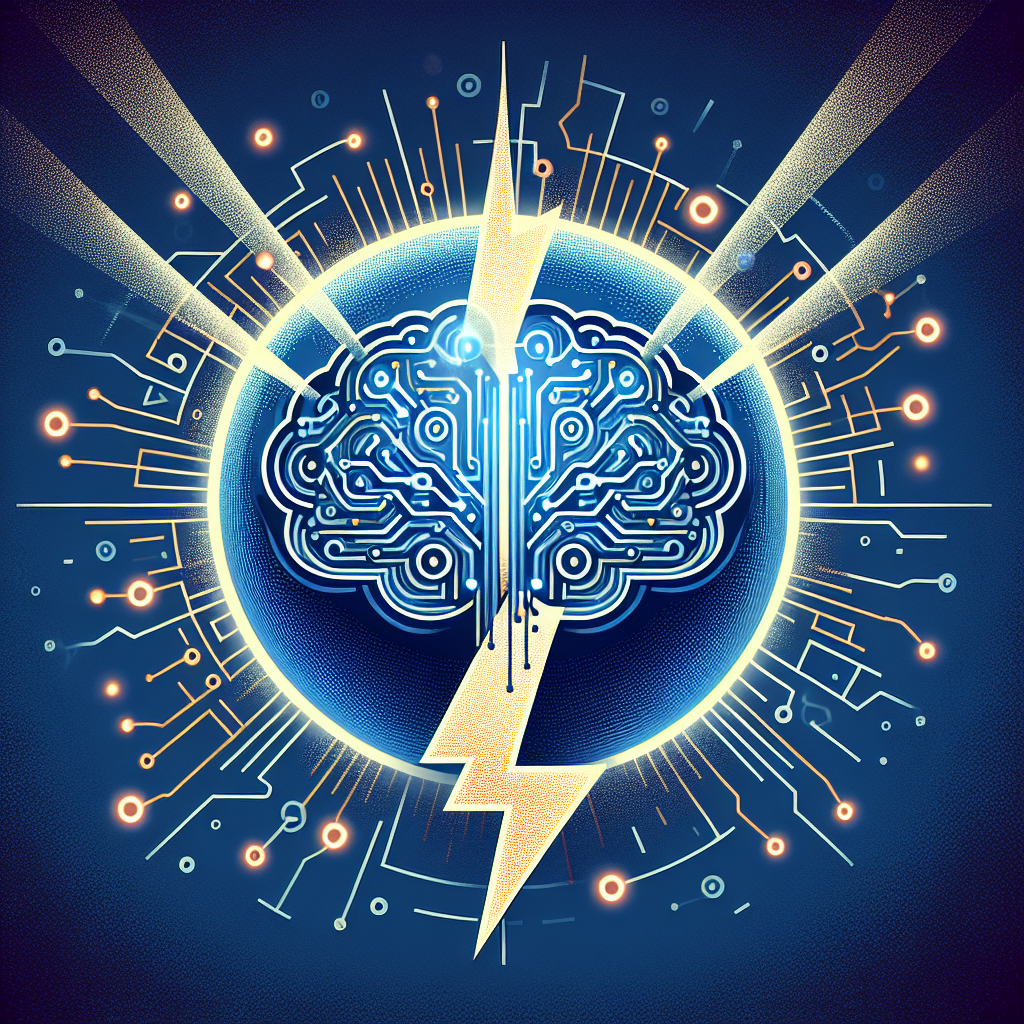Unleashing the Power of AGI: A Look at the Potential Impact
Artificial General Intelligence (AGI) is a concept that has been the subject of much debate and speculation in recent years. While artificial intelligence (AI) has made significant advancements in specific domains such as image recognition, natural language processing, and game playing, AGI aims to create machines that possess human-like general intelligence and can perform a wide range of cognitive tasks.
The potential impact of AGI is vast and far-reaching, with proponents touting its ability to revolutionize industries, improve healthcare, enhance productivity, and even solve some of the world’s most pressing problems. However, there are also concerns about the ethical implications, potential job displacement, and the risks associated with creating machines that are more intelligent than humans.
In this article, we will explore the potential impact of AGI and the various ways in which it could shape our future.
The Potential Impact of AGI
1. Revolutionizing Industries: AGI has the potential to revolutionize industries across the board by automating tasks, improving efficiency, and driving innovation. In the healthcare sector, for example, AGI could help doctors diagnose diseases more accurately and efficiently, leading to better patient outcomes. In the financial sector, AGI could be used to predict market trends, manage risk, and optimize investment strategies.
2. Enhancing Productivity: AGI could significantly enhance productivity by automating repetitive tasks, freeing up human workers to focus on more creative and strategic activities. This could lead to a more efficient workforce and higher levels of innovation and growth.
3. Solving Global Challenges: AGI has the potential to help solve some of the world’s most pressing challenges, such as climate change, poverty, and disease. By analyzing vast amounts of data and identifying patterns and trends, AGI could help researchers develop new solutions and strategies to address these issues.
4. Improving Human-Machine Interaction: AGI could lead to significant advancements in human-machine interaction by enabling machines to understand and respond to human emotions, intentions, and needs. This could lead to more intuitive and personalized user experiences across a wide range of applications, from virtual assistants to autonomous vehicles.
5. Driving Technological Innovation: AGI could fuel rapid advancements in technology by enabling machines to learn and adapt to new challenges and environments. This could lead to breakthroughs in areas such as robotics, autonomous systems, and personalized medicine.
Concerns and Challenges
While the potential impact of AGI is promising, there are also concerns and challenges that must be addressed to ensure its safe and ethical development.
1. Ethical Implications: AGI raises a host of ethical questions, including issues related to privacy, security, bias, and accountability. As machines become more intelligent and autonomous, it will be crucial to establish clear guidelines and regulations to ensure that they are used responsibly and ethically.
2. Job Displacement: The widespread adoption of AGI could lead to job displacement as machines take over tasks that were previously performed by humans. This could lead to economic instability and social unrest, highlighting the need for policies and programs to retrain workers and support those affected by automation.
3. Risks of Superintelligence: There are concerns about the risks associated with creating machines that are more intelligent than humans, known as superintelligence. If AGI surpasses human intelligence, it could lead to unintended consequences, such as the loss of control over AI systems or the potential for malicious use by bad actors.
4. Lack of Transparency: The complexity of AGI systems makes it challenging to understand how they make decisions and operate. This lack of transparency raises concerns about accountability, fairness, and the potential for unintended consequences.
5. Security Vulnerabilities: AGI systems could be vulnerable to cyberattacks, manipulation, and misuse, posing risks to individuals, organizations, and society at large. It will be essential to develop robust security measures and protocols to protect against these threats.
FAQs
Q: What is the difference between AGI and AI?
A: Artificial General Intelligence (AGI) aims to create machines that possess human-like general intelligence and can perform a wide range of cognitive tasks. In contrast, artificial intelligence (AI) focuses on developing machines that can perform specific tasks or functions, such as image recognition, natural language processing, and game playing.
Q: How close are we to achieving AGI?
A: Achieving AGI is a complex and challenging task that is still in the early stages of development. While significant progress has been made in the field of AI, creating machines that possess human-like general intelligence remains a long-term goal that will require continued research and innovation.
Q: What are the potential benefits of AGI?
A: AGI has the potential to revolutionize industries, enhance productivity, solve global challenges, improve human-machine interaction, and drive technological innovation. By automating tasks, improving efficiency, and driving innovation, AGI could lead to significant advancements in a wide range of areas.
Q: What are the risks associated with AGI?
A: There are concerns about the ethical implications, job displacement, risks of superintelligence, lack of transparency, and security vulnerabilities associated with AGI. It will be crucial to address these risks and challenges to ensure the safe and ethical development of AGI.
Q: How can we ensure the safe and ethical development of AGI?
A: To ensure the safe and ethical development of AGI, it will be essential to establish clear guidelines and regulations, address ethical questions and concerns, develop robust security measures, and promote transparency and accountability. Collaboration between governments, industry leaders, researchers, and the public will be crucial in shaping the future of AGI in a responsible and ethical manner.
In conclusion, AGI has the potential to revolutionize industries, enhance productivity, solve global challenges, improve human-machine interaction, and drive technological innovation. While there are concerns and challenges that must be addressed, the future of AGI holds great promise for shaping a more efficient, innovative, and sustainable world. By working together to address the risks and ethical implications, we can unleash the power of AGI to benefit society and advance human progress.

